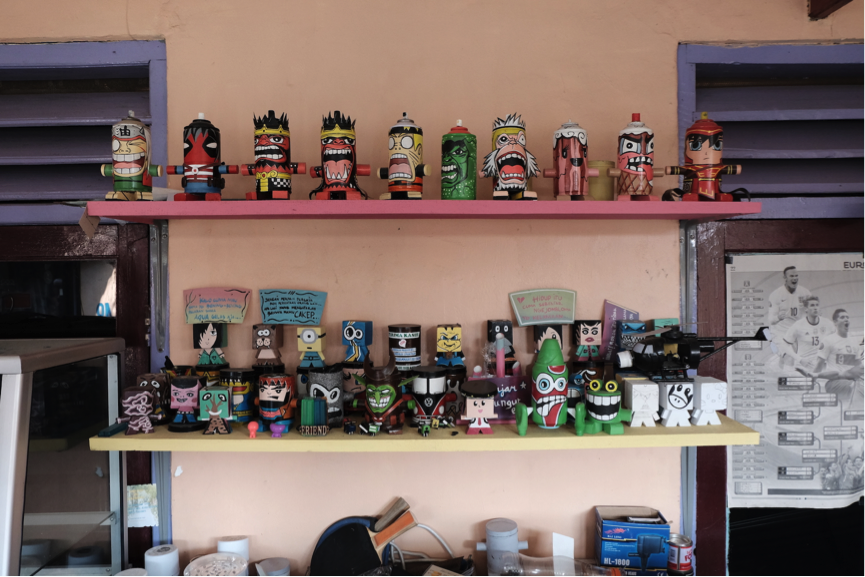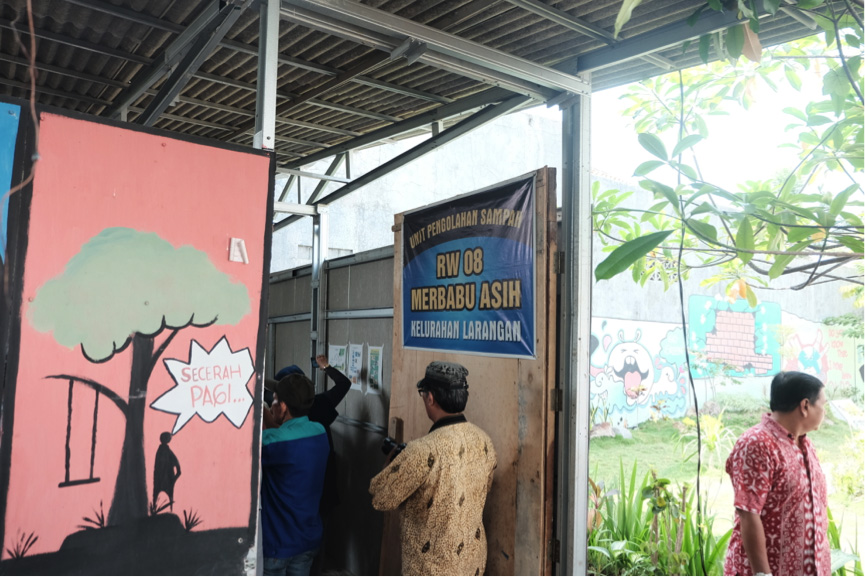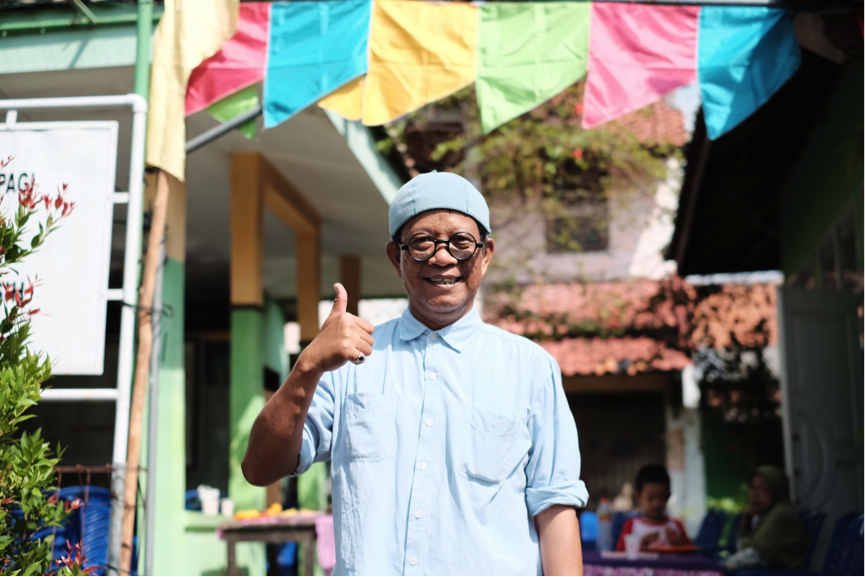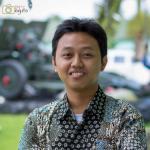The sun shone brightly as if welcoming us to what is famously called ‘shrimp city’: Cirebon. Located on the northern coast of West-Java, the sea has caused the city’s temperatures to be quite high. Cirebon is said to be one of the country’s most drought-prone cities. In 2015, nearly 14,000 ha rice fields experienced drought. However, when it starts to rain some parts of the city are also prone to flooding. Therefore, environmentally conscious planning should be used to overcome these challenges.
A neighbourhood located in the central part of Cirebon city has applied environmentally conscious planning since 2008. Kampung Iklim Merbabu Asih is a renowned eco-friendly neighbourhood. The initiator, Agus Supriono, is neither a climate change expert, nor an environmental expert. He is a former engineer who initiated this eco-friendly neighbourhood project in 2008. With his leadership in the community, he formed a group called ‘Secerah Pagi’. He said that heaps of garbage caused by city’s festival had repeatedly blighted his neighbourhood.
“Those filthy garbage heaps increased the risk of floods in our neighbourhood.”
He added, “We don't expect government to solve all our problems. That was why we started the solid-waste management project."
Fortunately, his idea received positive responses from other residents.
“They were actively involved on every project. We have been working to create this eco-friendly neighborhood together.”
Agus started this eco-friendly neighbourhood program by managing organic waste. Together with other residents, he turned organic waste into organic fertilizer (compost). He collected empty paint cans and used them as composters.
“We started only with two-used paint cans.” he said as he showed them to us.
Residents use the compost for planting at their houses. Nowadays, the waste management project has expanded to non-organic waste. Women around the neighborhood produce handicraft objects using things like plastic bottles, paper, and plastic bags and sell them in their own showroom.

Kampung Iklim Merbabu Asih also has its waste bank activity. Agus encourages residents to save money by trading their trash here. This trash-to-cash approach uses the waste to regenerate fibers that will be recycled. Teenagers and children also actively participate in this recycling process.
“They paint these craft paper-boxes,” said Agus as he showed us the products they sell.
Agus’ desire to maintain an eco-friendly neighborhood has attracted the attention of the private sector which carries out corporate social responsibility (CSR) activities in Kampung Iklim Merbabu Asih. Agus told us about some of the collaboration between the neighbourhood and private sector entities (e.g. waste bank, park, and pavement). And it’s not only the private sector; the neighbourhood has also attracted the attention of the government and academia. Moreover, foreign tourists, especially those with a background in research, also visit this famous eco-friendly neighbourhood.

“I am an engineer who dedicated my life to the community. I don’t know about climate change at all. Yet, I just want to see my grandchildren play outside happily. Thus, we need to save the environment as soon as possible, by leading an environmentally conscious approach to planning.”
One thing is clear; it requires strong passion and determination to create a sustained eco-friendly neighbourhood. He has managed the eco-village for around eight years. He emphasized, it needs time to make all residents understand and start to incorporate eco-values into their daily practices.
Agus continued, they are currently trying the biopores method (i.e. groundwater infiltration holes) to increase the land’s capacity to absorb water in the neighbourhood. Biopores are installed to prevent floods from occurring. “We initiated collaboration with Cirebon City Government to build infiltration wells too.”
Besides that, Agus and his neighbourhood also installed a rainwater-harvesting system to create an alternative source of water and mitigates drought that sometimes happens in their neighbourhood. Agus hopes there will be more people who care about the environment. He hopes environment issues will gain more attention in the future, and people will start to take action.








